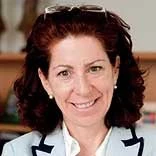The World Bank Group advocates the integration of development issues into the next global climate agreement, without taking sides based on the negotiating positions of individual parties to the UNFCCC. One of the purposes of the upcoming World Development Report (WDR) 2010: Development and Climate Change—as well as a number of other country-level studies at various stages of completion—is to actively share economic analysis and practical knowledge intended to help policymakers in various countries take informed decisions on poverty reduction and sustainable development in “a changing climate”.
Our team of authors is working hard to pull together an enormous amount of analysis into the upcoming WDR. One of our emerging messages is that poor countries will be disproportionately affected by climate change, even as they strive to reduce poverty and boost economic growth—which remain core priorities. A combination of science and economics tells us that reducing potentially devastating climate effects while avoiding an exorbitant price tag will require immediate and comprehensive global action. Indeed, every available tool must be employed for both adaptation and mitigation.
In Bonn last week, there was hope that much can be achieved by a concerted international effort to draw up a fair and equitable climate deal. From the point of view of ethics—and I firmly believe that ethics has a strong role to play—rich countries will need to not only lead the way in adopting climate-smart policies at home and thus generate demand for green technologies, but also in helping close the massive financing gap for adaptation and mitigation in developing countries.
With the WDR, we want to capture the scope and significance of the challenge that climate change poses for development. We are focusing on reducing human vulnerability; managing land and water; stimulating development without compromising the climate; harnessing and efficiently using funds for mitigation and adaptation; accelerating the spread of “climate-smart” technologies; and, last, but not least, communicating climate change issues to societies.
The report will be published in mid-September 2009.


Join the Conversation